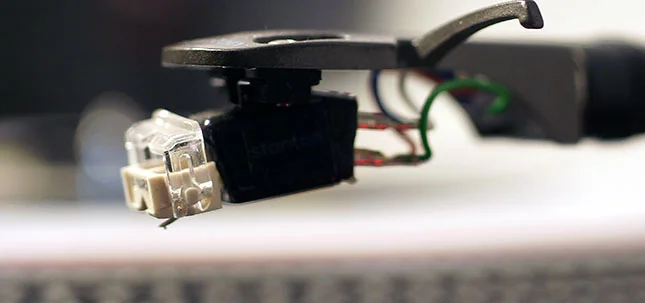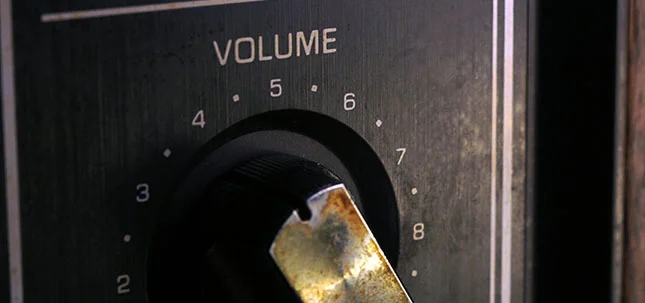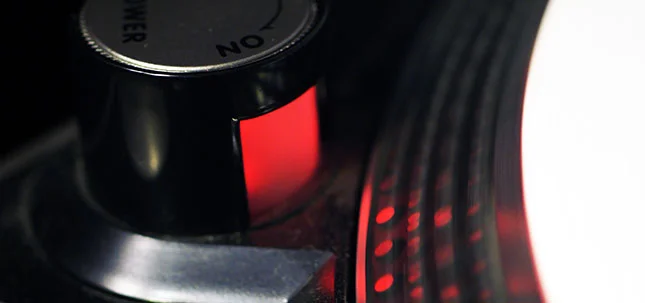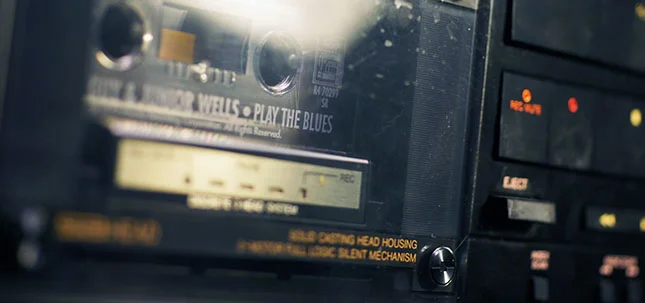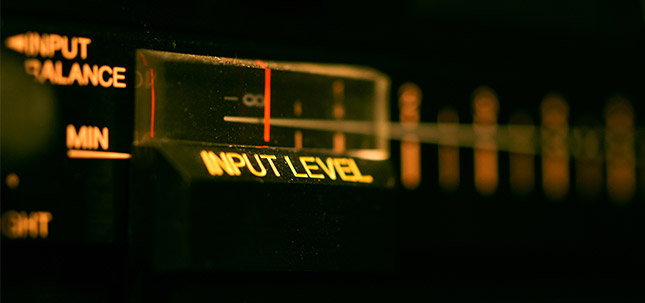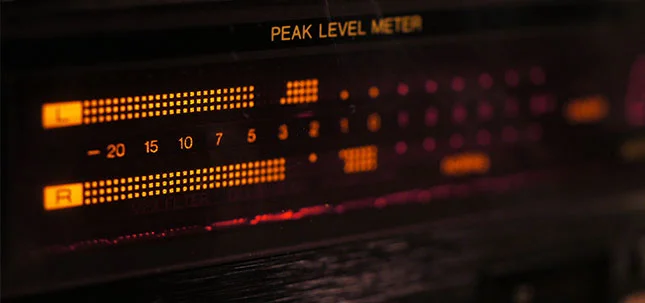The Filthy Fifteen: Part 1
This week, we’ll be covering the Parents Music Resource Center’s Filthy Fifteen: a list of songs from 1985 that, according to watchdog the group, embody the music industry’s flagrant promotion of sex, violence, drugs, and the occult. For more background, check out our introductory article.
Prince - "Darling Nikki"
The PMRC must have thought they were pretty clever. Topping their list is a deeper cut-- not one of the massive hit singles-- from Prince’s 1984 film soundtrack, Purple Rain. In her Senate testimony, PMRC member Susan Baker denounced “Darling Nikki.” Baker, while refuting the notion that these explicit songs are few and far between, claims that Prince’s “[song] about masturbation sold over 10 million copies.” While the Purple Rain soundtrack was a smash hit, it’s ridiculous to attribute every sale of the record to “Darling Nikki.” It’s more likely the album’s singles, two of which hit No. 1 on the charts, propelled the sales of the album. “Darling Nikki” was never released as a single, so to say that this specific album track sold ten million copies is a bit of a misnomer.
What makes the PMRC’s choice of “Darling Nikki” interesting, though, is that Prince’s “song about masturbation” was pigeonholed and taken out of context by the watchdog group. If Tipper Gore, Susan Baker, and the rest of the PMRC has actually sat down to watch Purple Rain, they would have realized that Prince’s song is intended to shock the characters in the film as well as the audience. According to Tipper Gore, she was only aware of the song because she caught her 11-year-old daughter listening to it in her room. Come on, Karenna Gore. Invest in some headphones.
In the film, Prince’s character, The Kid, is upset by the announcement that a member of his band, The Revolution, has abandoned him for a rival group. The Kid returns to the stage with an uncomfortable, hyperbolically sexual performance of “Darling Nikki” directed at his former bandmate-- heavily implying that she is, in fact, the “sex fiend” that he caught “masturbating with a magazine.” The former member, Apollonia, is distraught and leaves the theater in tears. It’s a harsh statement by Prince’s character, but these are the things that people do when they feel slighted. Everyone makes mistakes, even Prince.
Thus, “Darling Nikki” is the perfect example of how out-of-touch the Parents Music Resource Center could be. Rather than understanding “Darling Nikki” in the context of Prince’s story, the PMRC heard the first two lines of the song and clutched at their pearls. If the PMRC went into those 1985 Senate hearings without understanding that the “shock rock” metal and sexually-driven pop stars were looking for snooty Washington-types to give them free publicity, they were already fighting a losing battle.
Sheena Easton - "Sugar Walls"
Okay, so “Sugar Walls” is undeniably graphic. I don’t think there’s any loose interpretation of “blood races to your private spots” that I’m missing. Once again, though, the PMRC played right into Sheena Easton’s hand.
Just four years prior, Easton had a worldwide No. 1 hit with “9 to 5 (Morning Train),” received an Academy Award nomination for her James Bond theme “For Your Eyes Only,” and cut “Wind Beneath My Wings” before Bette Midler got the chance. Sheena was squeaky clean.
After a brief attempt at cornering the Spanish-speaking market with her album Todo Me Recuerda a Ti, Easton sensed the changing tides of pop music after Madonna’s huge success in 1984. Partnering up with Devo and (well, look at that!) Prince, Easton changed her look, learned how to strut, and released her album, A Private Heaven. Prince, under the pseudonym “Alexander Nevermind,” wrote “Sugar Walls” for Easton and helped form her into the supposedly sexually deviant pop star that could draw the ire of conservative gatekeepers, like the Parents Media Resource Center. It worked.
A Private Heaven’s first two singles both cracked the top ten on Billboard’s Hot 100 charts-- with “Sugar Walls” staying there for nine consecutive weeks even while conservative broadcast stations refused to spin the song. Once again, the conservative groups failed to realize that they controversy they were creating drew attention to the song. Sheena Easton was not a dumb pop star singing about her vagina. She was a talented singer who used the media and her resources to get her records some attention in a changing pop music scene. Easton’s partnership with Prince later spawned a few duets with the purple-clad singer: “U Got the Look” from 1987’s Prince concert film Sign o’ the Times and “The Arms of Orion” from 1989’s Batman soundtrack. I’d say she turned out pretty good, Tipper.
Judas Priest - "Eat Me Alive"
In Susan Baker’s Senate testimony, she refers to “Eat Me Alive” as “the one about forced oral sex at gunpoint.” To be fair, the song is incredibly explicit. Rob Halford sings about his “rod of steel” and the “gut-wrenching frenzy that deranges every joint” while having sex with a person of unspecified gender. Obviously, sexually explicit songs are nothing new-- nor are they relegated to the 80s. Later in her testimony, Susan Baker tries to claim that “the material we are concerned about cannot be compared with… Cole Porter. ‘Birds do it, bees do it,’ can hardly be compared with W.A.S.P.’s, "I F-U-C-K Like a Beast." I’m sure Susan Baker still thinks that Dinah Washington’s “Big Long Slidin’ Thing” from 1954 is really about a trombone player.
So while we can’t refute the notion that “Eat Me Alive” is sexually explicit, the PMRC used it to highlight an increase in rape in America. Pastor Jeff Ling, a satellite member of the PMRC, claims in his testimony that “Judas Priest sings of violent rape” and quotes the lyric about what he interprets as forced oral sex. The fault of this argument is the act of rape being blamed on something other than a rapist. Songs do not cause rape, and while media does contribute to rape culture, pinning a systematic problem on one song that reaches a limited market does not hold much water.
Pastor Ling seems to believe that he is one of the few great students of rock music who can interpret Judas Priest lyrics with authority, which brings us to one of Frank Zappa’s largest issues with the PMRC’s campaign: the actual enforcement of their proposals. Zappa, in his testimony explains that, if passed, the PMRC’s hope for a ratings system will “keep the courts busy for years dealing with the interpretational and enforcemental problems inherent in the proposal's design.” Courts and legislatures, however, could instead be focused on dealing with the actual causes and incidents of sexual violence, instead of grappling with heavy metal lyrics.
While some may find “Eat Me Alive” garish and profane, it’s possible that some listeners may not. Defining taste for all will not solve social problems.
Vanity - "Strap On 'Robbie Baby"
Tipper Gore must absolutely hate Prince. Denise Katrina Matthews was a Canadian model who met Prince backstage at the American Music Awards in 1980. Prince found out she could sing, renamed her “Vanity,” and made her the lead singer of a girl group passion project he’d been working on. Prince supplied the group, Vanity 6, with racy songs and dance moves-- and even went as far as giving away his own writing credits to members of the band. Vanity 6 had one album and one notable single: 1982’s “Nasty Girl” from the group’s eponymous record.
After a few tours and and on-again-off-again romance with Prince, Vanity was lured away from Vanity 6 by the promise of her own record deal at Motown Records. As we all learned from Purple Rain, Prince does not take abandonment kindly.
Vanity was replaced by Patricia Kotero as both the lead singer in Vanity 6 and the role of Apollonia in Purple Rain. Forging ahead, she released two solo records, Wild Animal and Skin on Skin, that never took off, but Vanity was finally able to see how far she could get without the aid of Prince. The results of her experiment can best be summed up by “Strap on ‘Robbie Baby.”
After her relationship with Prince, Vanity started dating a man named Robert Bruce McCan. In what might be the most pathetic attempt at getting back at an ex-lover ever, McCan wrote “Strap on ‘Robbie Baby” about the pair’s wild sexual exploits. The lyrics are almost nonsensical and the rest of the song is filled with Vanity’s shrieks and grunts. Looking back, not even the rose-colored glasses of living in a post-1980s music world can save “Strap on ‘Robbie Baby.”
So why pick on Vanity, Tipper? She was far from a pop superstar, her work with Prince and Vanity 6 was much more vulgar (the group was named after the number of breasts in the band, for example), and she seemed to be fading back into obscurity after cutting ties with the man who made her famous.
The only solution I can come up with is that Tipper Gore hates Prince. She probably walked out of the room during his Super Bowl halftime show. I’m sure she never stood in a packed club with her hands raised to the sky while listening to the opening eulogy from “Let’s Go Crazy.” Tipper Gore just can’t understand why this tiny, bedazzled man is so famous. Either way, his contributions to music make up a full one-fifth of The Filthy Fifteen. I honestly think that Tipper believed she was a plucky David fighting a Goliath who later replaced his name with a nonsense symbol and needs a motorized scooter to get around backstage. She’s lucky that he didn’t show up to testify.
Mötley Crüe - "Bastard"
If Tipper and the PMRC couldn’t get behind some racy R&B, they certainly never threw horns up with the Crüe.
Mötley Crüe is yet another prime example of the Parents Music Resource Center failing to be in on the joke. Throughout the early 1980s, Mötley Crüe left a trail of destruction behind them at every stop-- or so they would have you believe.
Most of these early, outlandish Mötley Crüe stories can be traced back to staged PR events from the group’s manager, Alan Coffman. Coffman would often use his assistant to garner the band any sort of press-- even going as far as calling in a false bomb threat on a venue in Edmonton. The Canadians also weren’t having it when the band wore their spiked stage outfits through airport security while lead singer Vince Neil got pulled aside for having a carry-on filled with lewd magazines. Needless to say, Mötley Crüe’s “Crüesing Through Canada” tour in 1982 ended prematurely and unsuccessful financially. The group did, however, score a lot of notoriety from the fabricated stories of debauchery.
Tipper Gore and the PMRC must have believed every word of Mötley Crüe’s expansive origin story, but they didn’t trust American parents to understand that the men pictured below might not be making the most kid-friendly music:
Rather than advising parents to be more aware of what their children were listening to, the PMRC wanted to stifle artists from the top down. Frank Zappa states in his Senate testimony that “no one has forced Mrs. Baker or Mrs. Gore to bring Prince or Sheena Easton into their homes… Apparently, they insist on purchasing the works of contemporary recording artists in order to support a personal illusion of aerobic sophistication.”
And that’s really the main issue with a bunch of conservative men and women trying to subjugate pop music to their own standards. Mötley Crüe isn’t for you, Tipper. Mötley Crüe is for every kid who got a hand-me-down jean jacket from their older brother and convinced their mom to stitch the name of their favorite band on the back. We can’t expect you to understand.
In the next installment of our analysis of The Filthy Fifteen, we'll be looking at songs from AC/DC, Twisted Sister, Madonna, W.A.S.P., and Def Leppard.





